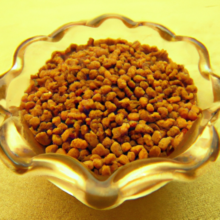Sage Advice: How This Ancient Herb Enhances Memory
Have you ever wished you could boost your memory and cognitive abilities without relying on expensive supplements or complicated techniques? Look no further than sage, the ancient herb that has been used for centuries to improve memory and overall brain function. In this article, we will explore the incredible benefits of sage and how incorporating it into your daily routine can enhance your memory and mental clarity. Get ready to unlock the secrets of this powerful herb and take your cognitive abilities to new heights!
Understanding Sage
History and origin of sage
Sage, scientifically known as Salvia officinalis, is a perennial evergreen herb native to the Mediterranean region. It has a long-standing history of use in traditional medicine and culinary practices. The Greeks and Romans were among the first to recognize the medicinal properties of sage, using it to treat various ailments such as digestive issues, sore throat, and memory problems. Over time, sage’s reputation as a powerful herb spread to different cultures, and it became a staple in herbal remedies around the world.
Common types of sage
There are several common types of sage, each with its own unique characteristics and flavors. Some popular varieties include:
Common Sage: This is the most widely used type of sage, known for its velvety gray-green leaves and strong earthy aroma. It is commonly used in cooking and herbal preparations.
Pineapple Sage: As the name suggests, this variety has a sweet pineapple-like fragrance. It is often used in desserts, beverages, and teas to add a delightful twist to the flavor profile.
Clary Sage: With its vibrant purple flowers and musky scent, clary sage is primarily used for its essential oils. It is known for its calming and stress-relieving properties.
White Sage: This type of sage is widely used in Native American traditions for smudging ceremonies. It has a strong, distinct aroma and is believed to ward off negative energies.
Nutritional profile of sage
Sage not only adds flavor to dishes but also provides various nutritional benefits. It is a good source of vitamins and minerals, including vitamin K, vitamin A, calcium, and iron. Additionally, sage is rich in antioxidants, which help protect the body against oxidative stress and reduce inflammation. Incorporating sage into your diet can be a flavorful way to supplement your overall nutrient intake and promote a healthy lifestyle.
Cognitive Benefits of Sage
Sage’s impact on memory and cognitive function
Sage has long been recognized for its memory-enhancing properties. Studies have shown that consuming sage can improve cognitive function, particularly memory retention and recall. The active compounds present in sage help enhance the communication between brain cells, leading to improved memory formation and retrieval.
Sage’s role in preventing cognitive decline
Cognitive decline, such as that associated with aging or neurodegenerative diseases like Alzheimer’s, is a growing concern. Research suggests that sage may have a protective effect against cognitive decline. The phytochemicals found in sage exhibit anti-inflammatory and antioxidant properties, which contribute to the preservation of brain health and the prevention of age-related cognitive decline.
Scientific evidence supporting sage’s cognitive benefits
Numerous scientific studies have investigated the cognitive benefits of sage. One study published in the Journal of Clinical Pharmacy and Therapeutics found that a sage extract significantly improved cognitive performance in healthy older adults. Another study published in Pharmacology, Biochemistry, and Behavior demonstrated that sage extract had positive effects on memory and attention in young adults. These studies provide evidence for the cognitive benefits of sage and support its traditional use as a memory-enhancing herb.
Active Compounds in Sage
Identifying the key active compounds in sage
The active compounds responsible for sage’s memory-enhancing properties are primarily terpenoids and phenolic compounds. Rosmarinic acid, a polyphenol abundant in sage, has been shown to have neuroprotective and memory-enhancing effects. Other important compounds include thujone, camphor, and 1,8-cineole, which contribute to sage’s aromatic and therapeutic properties.
How these compounds interact with the brain
The active compounds in sage interact with the brain through various mechanisms. Rosmarinic acid, for example, acts as an antioxidant, protecting brain cells from oxidative stress and inflammation. It also helps regulate neurotransmitter levels, which are crucial for optimal brain function. The terpenoids found in sage have been shown to enhance cholinergic activity, which plays a key role in memory and learning processes.
Synergistic effects of multiple compounds in sage
The combination of different active compounds in sage works synergistically to enhance memory and cognitive function. Each compound contributes unique benefits to support brain health. For example, rosmarinic acid provides antioxidant and anti-inflammatory effects, while thujone and camphor have been shown to enhance neurotransmitter activity. The synergistic effects of these compounds make sage a potent herb for cognitive enhancement.
Enhancing Memory with Sage
Improving short-term and long-term memory
Sage has the potential to improve both short-term and long-term memory. In a study published in Psychopharmacology, participants who consumed sage oil demonstrated enhanced memory recall and improved accuracy in cognitive tasks. The memory-boosting effects of sage can be beneficial for daily activities, such as remembering important information or learning new skills.
Boosting focus and concentration
Not only does sage enhance memory, but it also improves focus and concentration. The compounds in sage help stimulate the brain and enhance cognitive processing, allowing individuals to maintain better attention and stay focused on tasks. Whether you are a student studying for exams, a professional dealing with a demanding workload, or someone looking to improve overall mental performance, sage can be a natural ally.
Enhancing learning and retention
Sage’s memory-enhancing effects can extend to the learning process as well. By improving memory consolidation and retrieval, sage can enhance the retention of newly acquired information. This can be especially beneficial for students looking to optimize their learning capabilities and absorb information more effectively.
Methods of Consumption
Using sage in cooking and recipes
One of the easiest and most enjoyable ways to incorporate sage into your daily routine is through cooking. Sage pairs well with various dishes, adding a distinctive flavor and aroma. Whether used fresh or dried, sage can be added to meat and vegetable dishes, soups, stews, and even desserts. It can be used as a seasoning, garnish, or the main ingredient, depending on the recipe. Experimenting with sage in the kitchen can not only enhance your culinary skills but also provide cognitive benefits.
Making homemade sage tea
Another popular method of consuming sage is by making homemade sage tea. To make sage tea, steep fresh or dried sage leaves in hot water for about 5-10 minutes. You can add honey or lemon for flavor, if desired. Sage tea can be enjoyed hot or iced and makes for a refreshing beverage that can be incorporated into your daily routine.
Supplementing with sage extract or capsules
For those seeking a more concentrated form of sage, supplements in the form of capsules or extracts are available. These supplements provide a standardized dosage of sage’s active compounds and offer a convenient way to ensure consistent consumption. It is important to follow the recommended dosage instructions provided by the manufacturer and consult with a healthcare professional before starting any new supplement regimen.
Dosage and Safety considerations
Recommended dosage for sage consumption
When using sage as a culinary herb or tea, there are no specific dosage guidelines. It is generally safe to consume moderate amounts of sage in food or beverage form. However, when considering sage extract or capsules as a supplement, it is important to follow the manufacturer’s recommended dosage instructions. Typically, a dosage of 300-600 mg of sage extract per day is considered safe for adults. It is always advisable to consult with a healthcare professional before starting any new supplement regimen.
Potential side effects and precautions
Sage is generally well-tolerated, but excessive consumption of sage or sage oil can lead to side effects such as dizziness, headache, and gastrointestinal discomfort. Pregnant women and individuals with epilepsy should avoid consuming high amounts of sage due to its thujone content, which can potentially trigger seizures. It is important to use sage in moderation and be mindful of its effects on your individual health.
Suitability and dosage adjustments for different populations
While sage is generally safe for adults, it is always advisable to consider individual factors and consult with a healthcare professional before using sage supplements or extracts. Children, pregnant or breastfeeding women, and individuals with underlying health conditions or taking medications should exercise caution and seek professional advice to determine the appropriate dosage and suitability for their specific circumstances.
Combining Sage with Other Memory-Enhancing Herbs
Synergy between sage and rosemary
Combining sage with rosemary, another well-known herb with memory-enhancing properties, can amplify their cognitive benefits. Both sage and rosemary contain compounds that support brain health and memory function. When used together, their synergistic effects create a powerful combination that can further enhance memory, focus, and overall cognitive performance.
Sage in combination with ginkgo biloba
Ginkgo biloba is another herb commonly associated with memory improvement. Combining sage with ginkgo biloba can provide a comprehensive approach to cognitive enhancement. Ginkgo biloba helps improve blood circulation to the brain, while sage targets memory and cognitive function. This synergy between the two herbs can promote optimal brain health and memory retention.
Exploring other herb combinations for memory enhancement
The world of herbal medicine offers a rich assortment of memory-enhancing herbs that can be combined with sage. Some other herbs known for their cognitive benefits include bacopa, gotu kola, and lion’s mane mushroom. Exploring different herb combinations can provide a personalized approach to memory enhancement, suiting individual preferences and specific cognitive needs.
Practical Tips and Recommendations
Incorporating sage into daily routines
To make the most of sage’s memory-enhancing benefits, consider incorporating it into your daily routines. Use it as a seasoning in your favorite dishes, add it to your morning tea or smoothie, or simply enjoy the aroma of burning sage for a calming effect. By making sage a regular part of your routine, you can maximize its cognitive benefits and make the most of its versatile qualities.
Creating an herb garden with sage
If you have a green thumb and enjoy gardening, consider cultivating your own sage plant. Sage is relatively easy to grow and can thrive in a variety of climates. By creating an herb garden with sage, you can have a fresh supply of this memory-enhancing herb right at your fingertips. Plus, the act of gardening itself provides mental stimulation and a sense of fulfillment.
Using sage aromatherapy for memory improvement
Aromatherapy is a popular holistic approach to enhance cognitive function and mood. Diffusing sage essential oil or using it in a massage oil can promote relaxation, mental clarity, and memory improvement. Incorporating sage aromatherapy into your daily routine can create a calming environment conducive to optimal brain function.
Sage Advice for Different Age Groups
Memory-boosting benefits for children and students
Children and students of all ages can benefit from sage’s memory-boosting properties. Whether it’s improving focus during study sessions, retaining information for exams, or enhancing overall learning capabilities, sage can be a valuable ally. Parents and educators can incorporate sage into the diet, use it for aromatherapy, or provide sage supplements (under professional guidance) to support children’s cognitive development and academic performance.
Sage’s effects on memory in adults
As adults navigate the demands of work, family, and daily responsibilities, memory and cognitive sharpness become even more crucial. Sage can help adults maintain mental agility, improve memory recall, and enhance overall cognitive function. Regular consumption of sage, whether through cooking, supplementation, or aromatherapy, can provide support for busy individuals striving for optimal mental performance.
Sage for elderly individuals and cognitive decline
The aging process often brings concerns about cognitive decline and neurodegenerative diseases such as Alzheimer’s. Sage has shown great promise in supporting brain health and memory function in elderly individuals. Its antioxidant and neuroprotective properties can help slow down cognitive decline and preserve cognitive function. Incorporating sage into the daily routine of the elderly can contribute to a healthier, more vibrant mind.
Future Research and Possibilities
Areas of sage research with potential
While sage’s memory-enhancing properties are well-established, there are still many areas of research with potential. For example, further exploration of specific mechanisms by which sage compounds interact with the brain can provide insights into the broader field of neurobiology. Additionally, investigating the effects of sage on specific populations, such as individuals with neurodegenerative diseases or cognitive impairments, can shed light on its potential therapeutic applications.
Exploring new applications for sage
Apart from memory enhancement, sage has been traditionally used for various purposes. Exploring other potential applications and benefits of sage, such as its antimicrobial properties, anti-inflammatory effects, or impact on mood and stress levels, can broaden its scope and contribute to its overall value as a versatile herb.
Combining traditional knowledge with modern science
As scientific research continues to uncover the cognitive benefits of sage, it is important to acknowledge the valuable wisdom passed down through generations in various traditional systems of medicine. By combining traditional knowledge with modern scientific methodologies, herbalists, researchers, and healthcare professionals can fully unlock the potential of sage and provide evidence-based recommendations for optimal cognitive health.
In conclusion, sage is not only a flavorful herb that adds depth to culinary creations, but it also offers a host of cognitive benefits. With its rich history, active compounds, and scientific evidence supporting its efficacy, sage has rightfully earned its place as a memory-enhancing herb. Whether consumed in food, tea, or supplement form, or enjoyed through aromatherapy, sage provides a natural and holistic approach to improving memory, focus, and overall cognitive function. So why not give sage a try and harness its ancient wisdom to enhance your memory and cognitive abilities?




